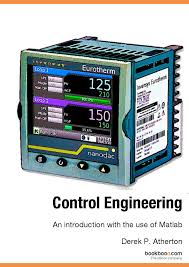
Electrical Engineering
Fundamentals of Electrical, Electronics & Control Engineering
| Date | Venues | Fees | Book your seat |
|---|---|---|---|
| 19 Jan - 23 Jan 2025 | Cairo | $ 2900 | Conducted Download Brochure |
| 26 Jan - 30 Jan 2025 | Istanbul | $ 3300 | Conducted Download Brochure |
| 23 Feb - 27 Feb 2025 | Cairo | $ 2900 | Conducted Download Brochure |
| 02 Mar - 06 Mar 2025 | Istanbul | $ 3300 | Conducted Download Brochure |
| 02 Mar - 06 Mar 2025 | Kuala Lumpur | $ 3300 | Conducted Download Brochure |
| 23 Mar - 27 Mar 2025 | Bahrain | $ 2900 | Conducted Download Brochure |
| 30 Mar - 03 Apr 2025 | Dubai | $ 2900 | Conducted Download Brochure |
| 06 Apr - 10 Apr 2025 | Kuala Lumpur | $ 3300 | Register Now Download Brochure |
| 27 Apr - 01 May 2025 | Bahrain | $ 2900 | Register Now Download Brochure |
| 04 May - 08 May 2025 | Dubai | $ 2900 | Register Now Download Brochure |
| 18 May - 22 May 2025 | London | $ 5500 | Register Now Download Brochure |
| 18 May - 22 May 2025 | London | $ 5500 | Register Now Download Brochure |
| 18 May - 22 May 2025 | Salalah | $ 2900 | Register Now Download Brochure |
| 24 Aug - 28 Aug 2025 | Sharm El-Sheikh | $ 2900 | Register Now Download Brochure |
| 07 Dec - 11 Dec 2025 | Kuala Lumpur | $ 3300 | Register Now Download Brochure |
| 14 Dec - 18 Dec 2025 | Cairo | $ 2900 | Register Now Download Brochure |
| 14 Dec - 18 Dec 2025 | Dubai | $ 2900 | Register Now Download Brochure |
| 21 Dec - 25 Dec 2025 | Bahrain | $ 2900 | Register Now Download Brochure |
| 21 Dec - 25 Dec 2025 | Istanbul | $ 3300 | Register Now Download Brochure |
